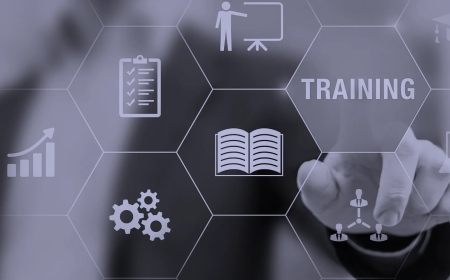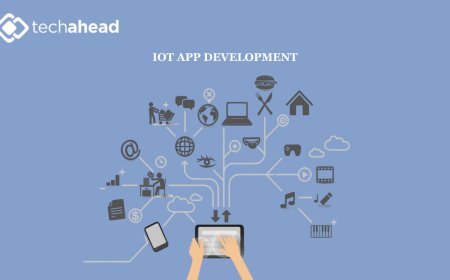How Fast Is AI Development Evolving Across the Globe?
AI development is advancing at an unprecedented pace, transforming industries, economies, and societies worldwide.

Artificial Intelligence (AI) has transitioned from a research-heavy niche to a powerful global force transforming industries, economies, and societies at large. Over the past decade, AI development has evolved at lightning speed, with nations racing to harness its potential. From government policies to private sector innovations, the worldwide momentum surrounding AI is both impressive and complex.
But just how fast is AI development evolving across the globe? And what factors are driving this acceleration? In this blog, we explore the global pace of AI advancement, compare progress across different regions, highlight breakthrough technologies, and assess what this rapid growth means for the future.
The Global Acceleration of AI: A Snapshot
AI development is not a uniform process. While some countries are trailblazers in research and deployment, others are emerging as agile adopters of AI-powered solutions. The evolution is influenced by many factorsinvestment levels, talent availability, data infrastructure, government policy, and cultural openness to innovation.
A few trends that underscore the pace of global AI evolution:
-
Exponential Increase in Research Output: Publications on machine learning and AI-related topics have doubled nearly every four years.
-
Rising Global AI Investments: According to McKinsey and Stanfords AI Index, private investment in AI reached over $100 billion in 2023 alone.
-
Proliferation of AI Startups: AI-driven startups are emerging from all corners of the world, not just Silicon Valley.
-
Rapid Adoption in Enterprises: Businesses across sectorsfrom retail and banking to agriculture and healthcareare rapidly integrating AI for operational efficiency.
Lets break it down by region.
United States: The AI Powerhouse
The U.S. remains one of the global leaders in AI development due to its strong ecosystem of research universities, tech giants (Google, Microsoft, Meta, OpenAI), and venture capital funding.
Key Drivers:
-
World-class Research: Institutions like MIT, Stanford, and Carnegie Mellon lead in AI research.
-
Private Sector Leadership: OpenAI's ChatGPT and Googles DeepMind have set global benchmarks.
-
Military & Defense AI: The U.S. Department of Defense heavily invests in autonomous systems and cybersecurity AI.
-
AI Policy and Ethics: Theres growing momentum toward regulatory frameworks like the Blueprint for an AI Bill of Rights.
Growth Outlook: The U.S. is poised to maintain leadership, particularly in generative AI, foundational models, and applied research.
China: Rapid Growth and Strategic Investment
China is arguably the fastest-growing player in global AI development, with a state-led strategy aimed at becoming the worlds AI leader by 2030.
Key Drivers:
-
National AI Plan: Chinas "Next Generation AI Development Plan" emphasizes heavy R&D, education, and infrastructure investment.
-
Data Abundance: With vast datasets and fewer privacy constraints, China accelerates model training at scale.
-
Tech Ecosystem: Companies like Baidu, Alibaba, Tencent, and Huawei are developing everything from AI chips to autonomous vehicles.
-
Smart Cities: AI is being used for facial recognition, traffic management, and social credit scoring.
Growth Outlook: China is rapidly catching up, especially in AI deployment and infrastructure, though it still lags slightly behind the U.S. in foundational research innovation.
Europe: Ethical AI and Research Excellence
Europes AI growth is driven by its emphasis on ethical AI, regulatory frameworks, and collaboration across nations.
Key Drivers:
-
AI Act & Regulation: Europe is setting the gold standard for responsible AI usage and data governance.
-
Academic Rigor: Countries like Germany, France, and the UK lead in AI publications and talent cultivation.
-
Public-Private Collaborations: EU-funded programs such as Horizon Europe foster innovation in AI for health, sustainability, and automation.
-
Focus on Explainability: European researchers are spearheading efforts in Explainable AI (XAI) and transparent systems.
Growth Outlook: Europe may not be as aggressive in commercialization, but its regulatory leadership will shape global standards.
India: Talent-Driven Expansion
India is emerging as a global AI hub, leveraging its vast pool of engineering talent and rising tech ecosystem.
Key Drivers:
-
Skilled Workforce: With over 3 million tech professionals and rising AI-specific educational programs, India is a talent goldmine.
-
Startup Surge: AI startups in sectors like agritech, edtech, and healthtech are booming.
-
Government Push: Initiatives like the National AI Strategy and Digital India are fueling AI adoption across public services.
-
Global Partnerships: India is collaborating with the U.S., EU, and Southeast Asia to co-develop AI frameworks.
Growth Outlook: India will likely become a major contributor in AI services, implementation, and scalable solutions for developing economies.
Middle East & Africa: Emerging Innovators
While still in the early stages, several Middle Eastern and African nations are investing heavily in AI as part of their modernization agendas.
Notable Examples:
-
UAE & Saudi Arabia: Massive investments in smart cities (e.g., NEOM), AI research centers, and AI-powered governance.
-
South Africa & Nigeria: Rise in AI-focused universities and startups working on financial inclusion, agriculture, and education.
Growth Outlook: These regions may leapfrog traditional development paths through AI, especially in public sector transformation and mobile-first innovations.
Southeast Asia & Pacific: Agile and Adaptive
Countries like Singapore, South Korea, and Japan are blending government policy with cutting-edge innovation to advance AI.
Key Drivers:
-
Singapore: Offers a national AI strategy focusing on healthcare, smart cities, and education.
-
Japan: Excelling in robotics, AI manufacturing, and elderly care solutions.
-
South Korea: Invests in AI semiconductors, 5G integration, and national AI cloud infrastructure.
Growth Outlook: These countries demonstrate how smaller nations can punch above their weight with targeted investments and public-private synergy.
Trends Accelerating Global AI Evolution
Across all regions, several common trends are contributing to the fast-paced evolution of AI:
-
Generative AI Explosion: Tools like ChatGPT, Midjourney, and Claude have unlocked new levels of AI creativity and user interaction.
-
Open-Source AI: Communities like Hugging Face and GitHub are democratizing AI tools, enabling innovation even in low-resource environments.
-
Multimodal AI: Progress in models that understand text, images, audio, and video simultaneously is shaping future applications.
-
AI for Good: Theres growing emphasis on AI for climate change, disaster prediction, and health diagnostics in under-resourced areas.
-
Cross-border Collaboration: Global partnerships are accelerating knowledge transfer and standardization efforts.
Challenges in Keeping Pace
While the speed of AI development is impressive, it also brings challenges:
-
Ethical Dilemmas: The race for innovation can outpace safeguards around privacy, fairness, and accountability.
-
Inequality in Access: Not all nations or communities benefit equally, leading to AI divides.
-
Regulatory Lag: Laws often trail behind the speed of innovation, causing ambiguity and risks.
-
Geopolitical Competition: Tech nationalism and AI arms races between superpowers can hinder global cooperation.
Final Thoughts
AI development is evolving at an extraordinary rate across the globe. The race is no longer just about who can build the most powerful modelit's about who can integrate AI responsibly, equitably, and sustainably. From research breakthroughs in the U.S. to rapid deployment in China, ethical frameworks in Europe, and emerging innovation in the Global South, every region contributes uniquely to this global revolution.
As AI continues to reshape everything from healthcare and finance to education and climate action, nations must work together to ensure the technology uplifts humanity. The future of AI will be defined not just by how fast we go, but by how wisely we proceed.


























